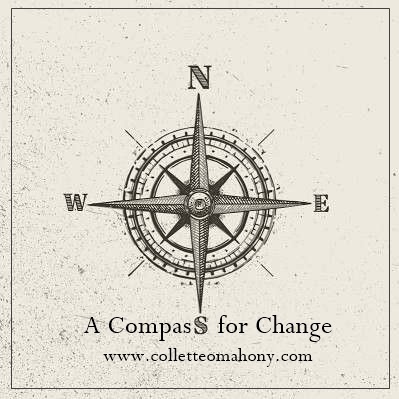Navigating Change
An extract from my upcoming guidebook – A Compass for Change.
When something cataclysmic occurs it has a direct effect on our mental health. This may be a gradual cause like separation and divorce, or an unexpected cause such as sudden death. The cause is the event, the effect is the feelings of loss and grief. We cannot undo the event no matter how much we may wish to but we can gradually process our feelings by giving them our attention. The effect of a job loss may shake our confidence and lead to financial uncertainty, on the other hand it may lead to better opportunities and increased salary. Preparation is the key to success in most fields of endeavour, it is similar for good mental health. Most people face a crisis when unwanted change is forced upon them through tragic or unavoidable circumstance. Similarly, those who try to avoid change reach a point where their health suffers due to a clash between their conditioned mind and their inner directive. The conditioned mind functions on schemas, the parameters laid down by learned habits, beliefs and structure. It arises from childhood and is influenced by family structure, schooling, regional and national thinking. On the other hand, the inner directive is our intuition, that which says something is wrong even if others try to convince you otherwise. Too often we allow ourselves to be swayed by what people think of us, or the mood of the collective.

Our initial response to enforced change is often resistance. This is understandable given how the subconscious operates. It takes longer for our subconscious mind to accept change, it runs on a conditioned loop compromising of our daily habits and cognitive learning, culminating in repetitive behaviour patterns. When these behaviour patterns are thrown into tumult through an unexpected event, the subconscious mind tries to default to the habitual patterns causing the thinking mind to struggle with the new situation. This is something that those who are bereaved struggle with, particularly in the early stages of grief, the conscious mind has to constantly remind the subconscious that their loved one is no longer with them. It can take several months for the subconscious to acknowledge the death, when it eventually does it reduces mental pressure. This permits normal functioning of the mind to resume and allow time for the bereaved person to process grief. Many bereaved people report feeling lost, confused, forgetful or think they are losing their mind; it could just be that the thinking mind is overloaded with functions that are normally designated to the subconscious. The subconscious will eventually register the change and adapt accordingly, but during the adjustment period there are feeling of loss and grief that require inner attention.
Many people take the view that free will is an illusion, and that our behaviour is governed by forces over which we have no control. Consequently, how we act or react is viewed as predictable or unavoidable. Our behaviour can be predictable, but that doesn’t make it’s inevitable. We can choose how to behave, but this is restricted if we determine we have to behave according to our structural belief system. As individuals we are free to choose our behaviour, we have a choice to act responsibly or irresponsibly.
Collette O’Mahony. 10/02/2024
Excerpt from the guidebook – A Compass for Change.




